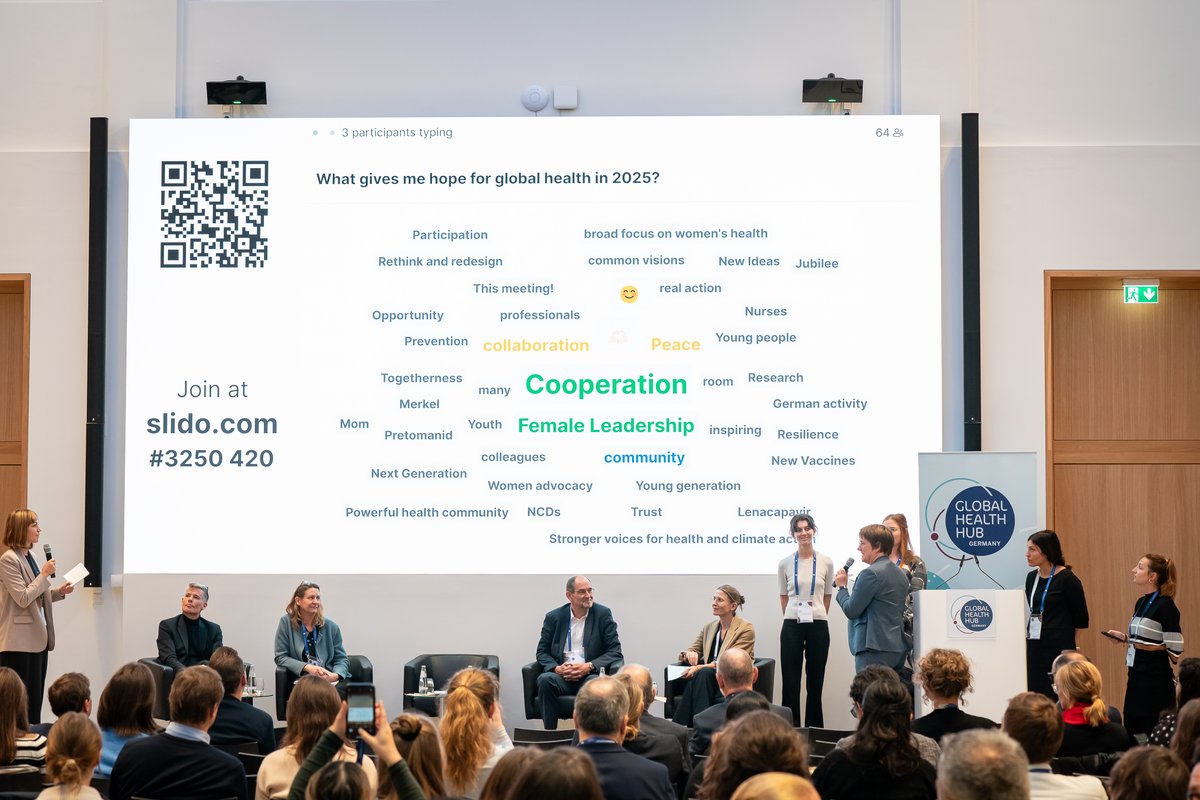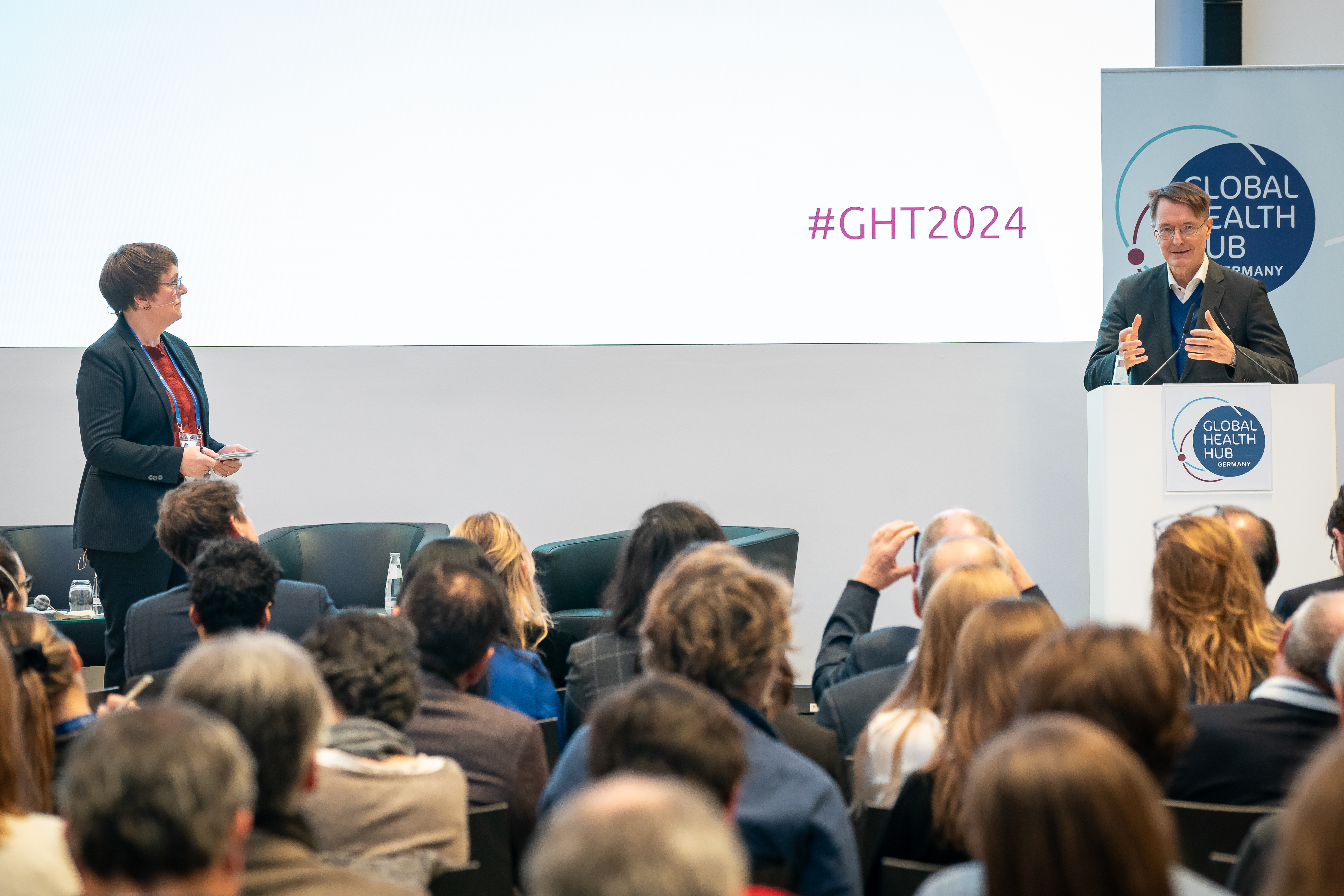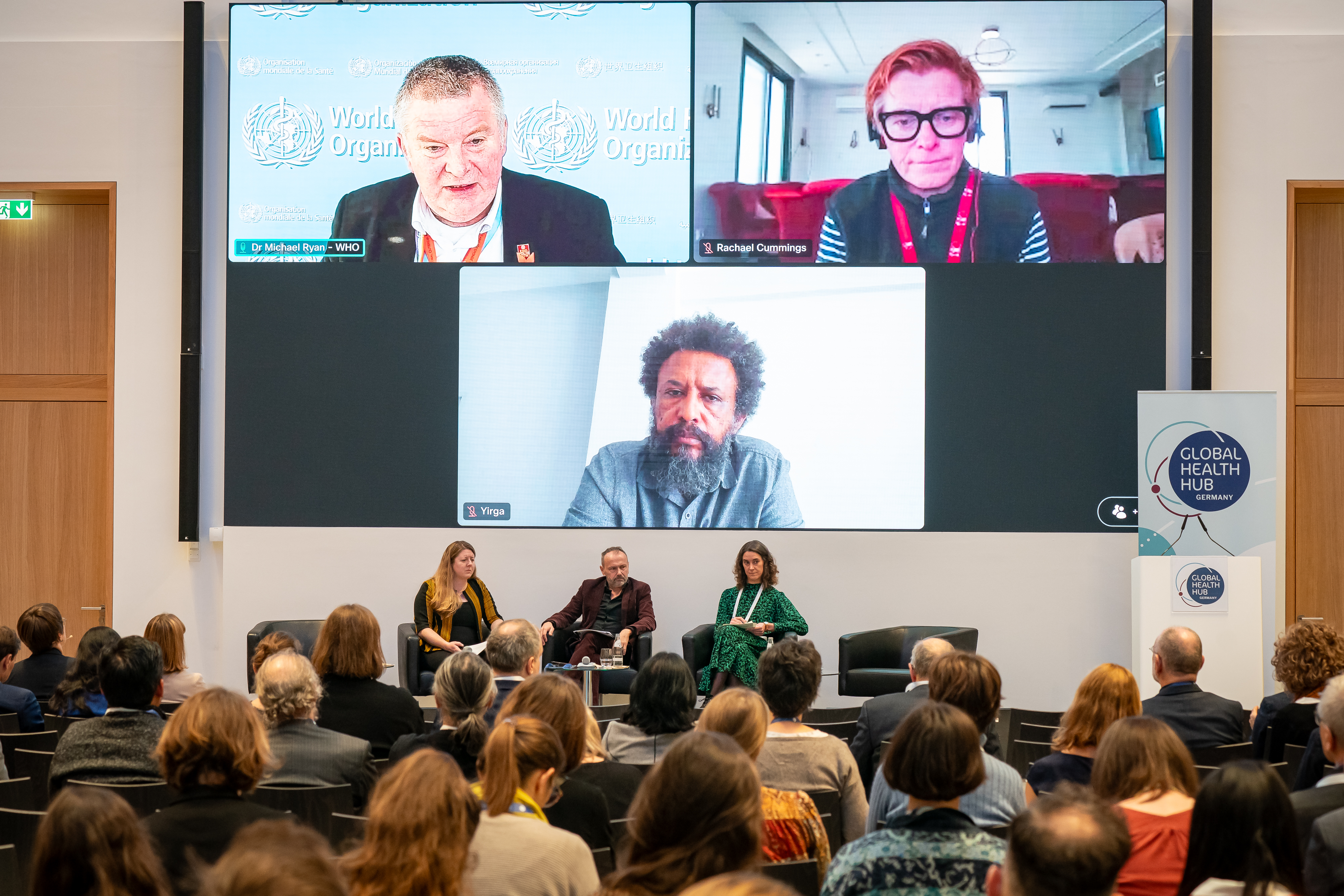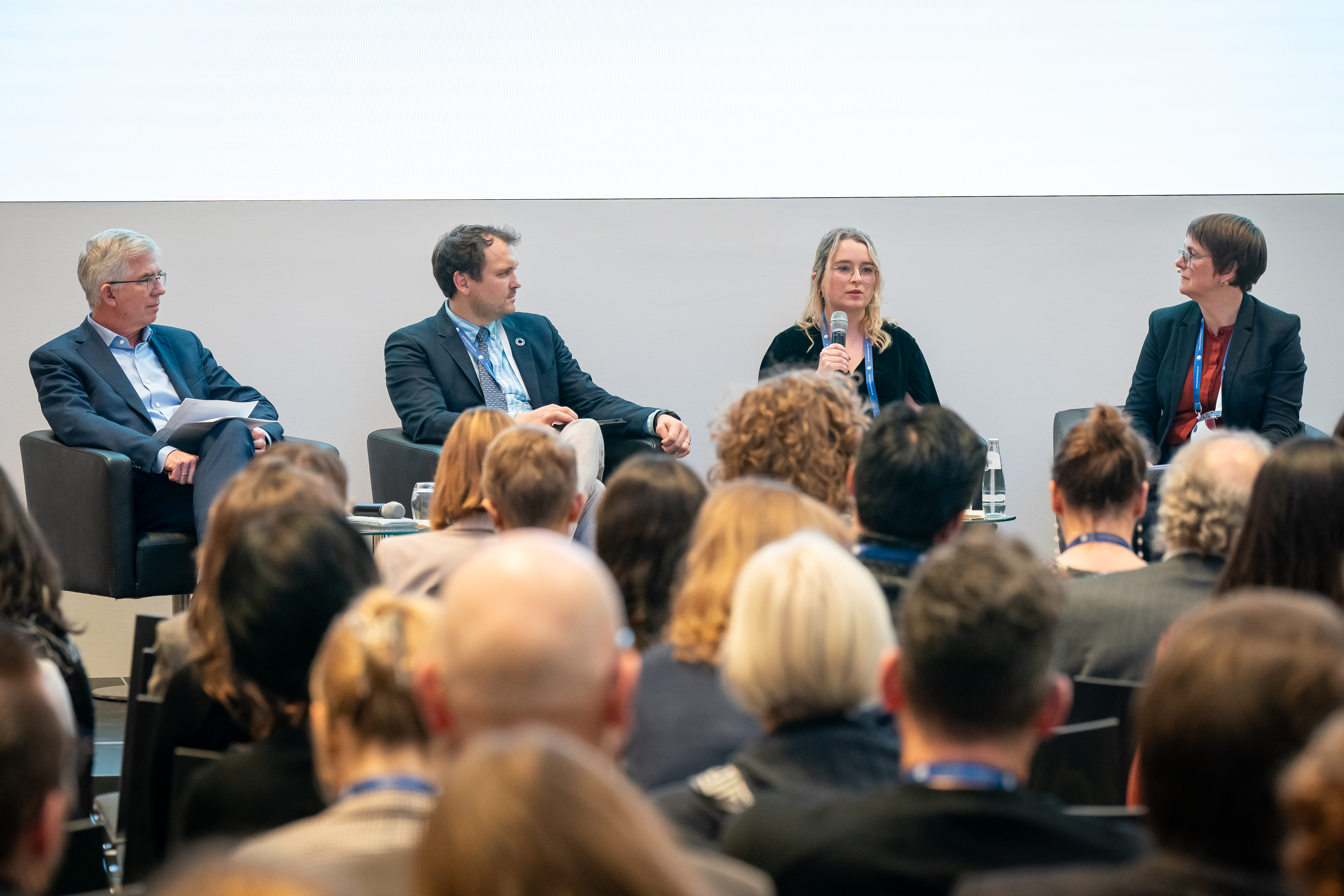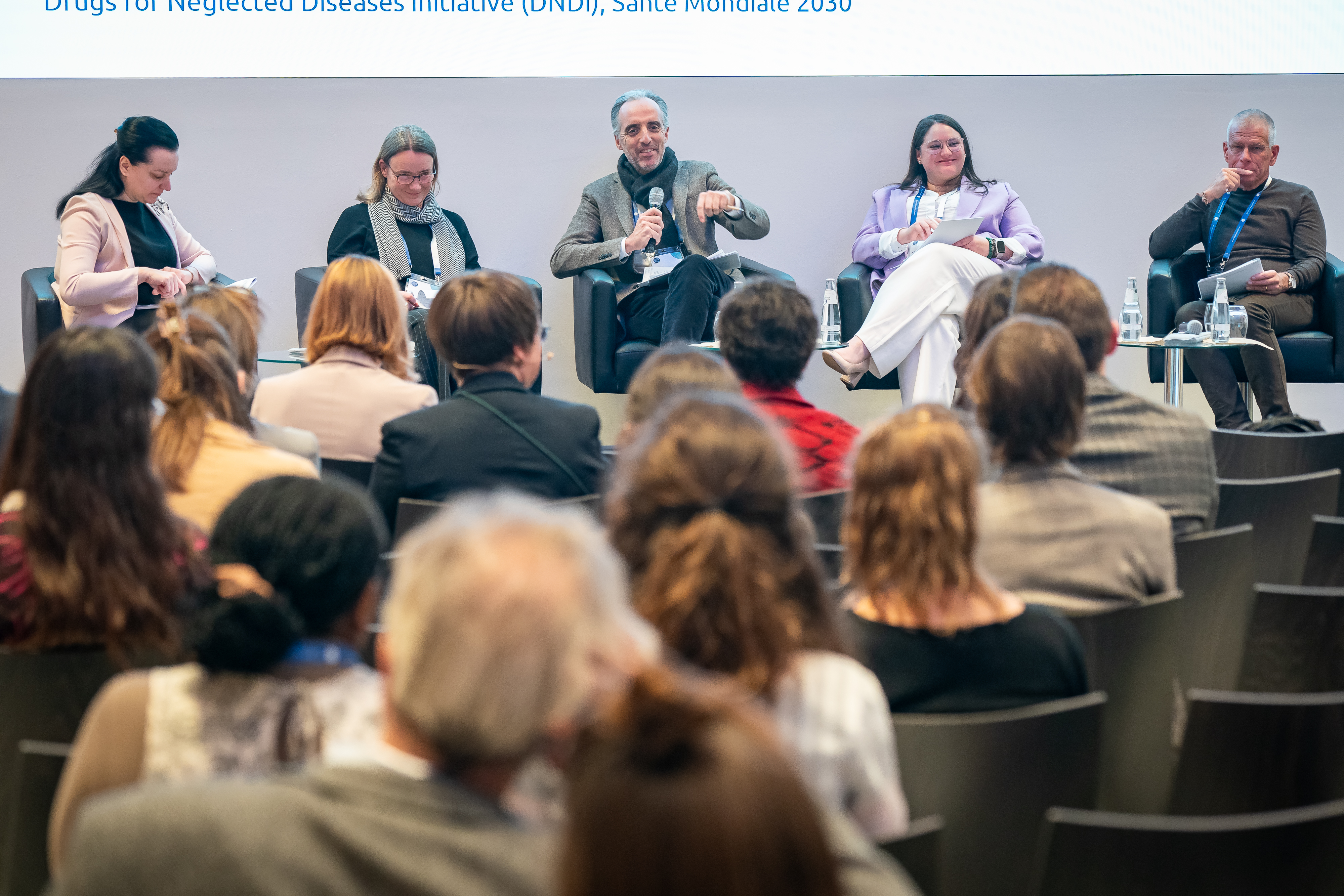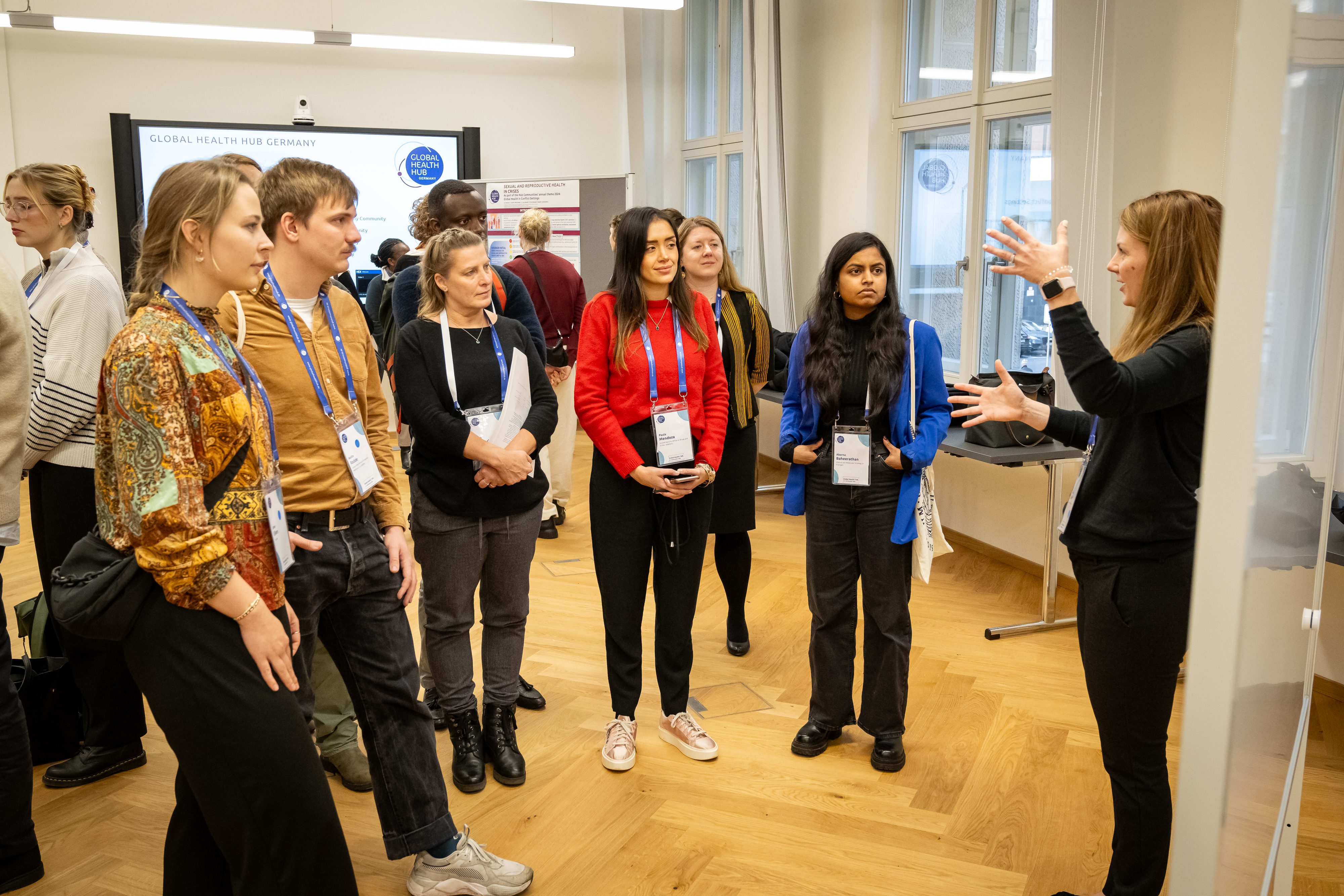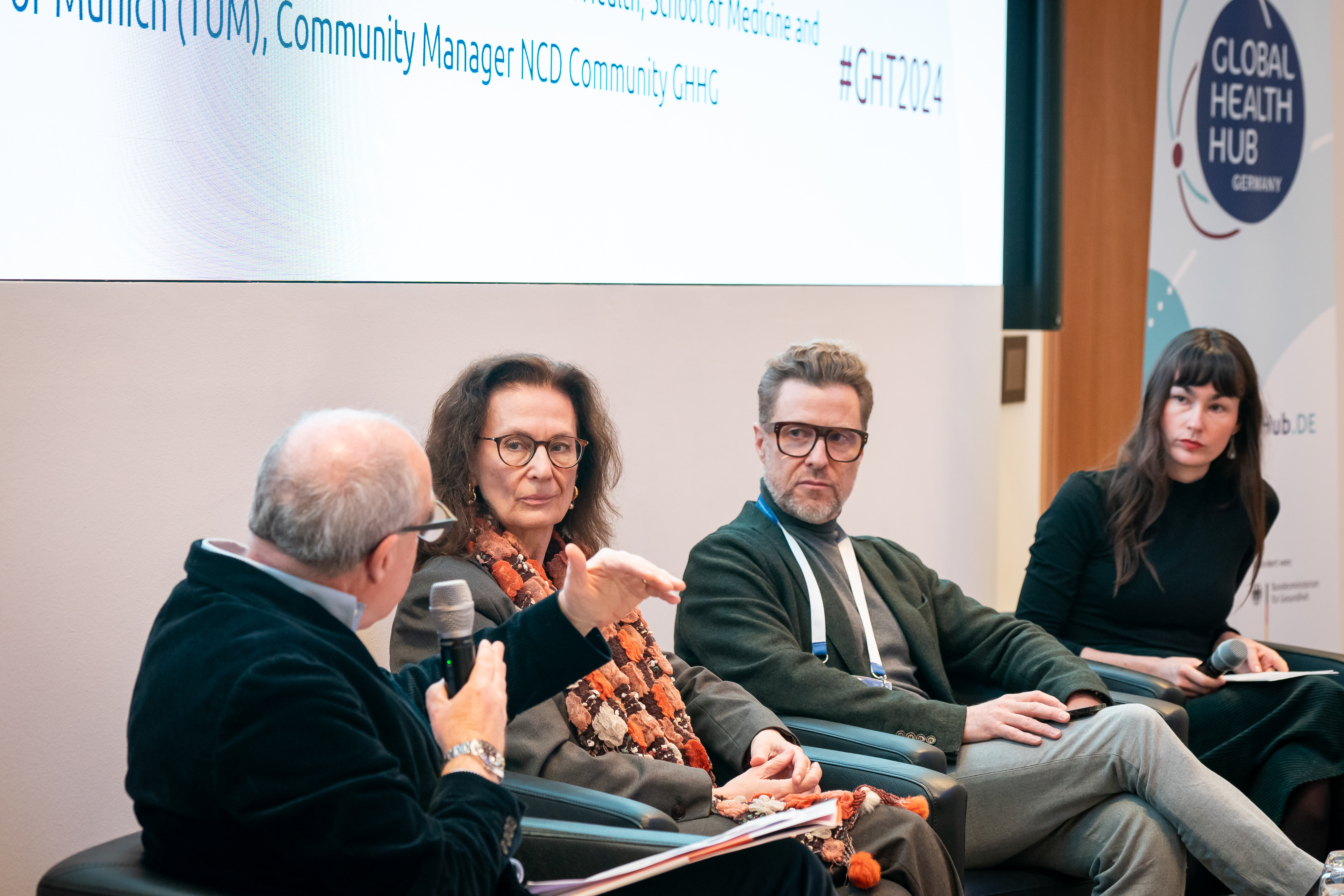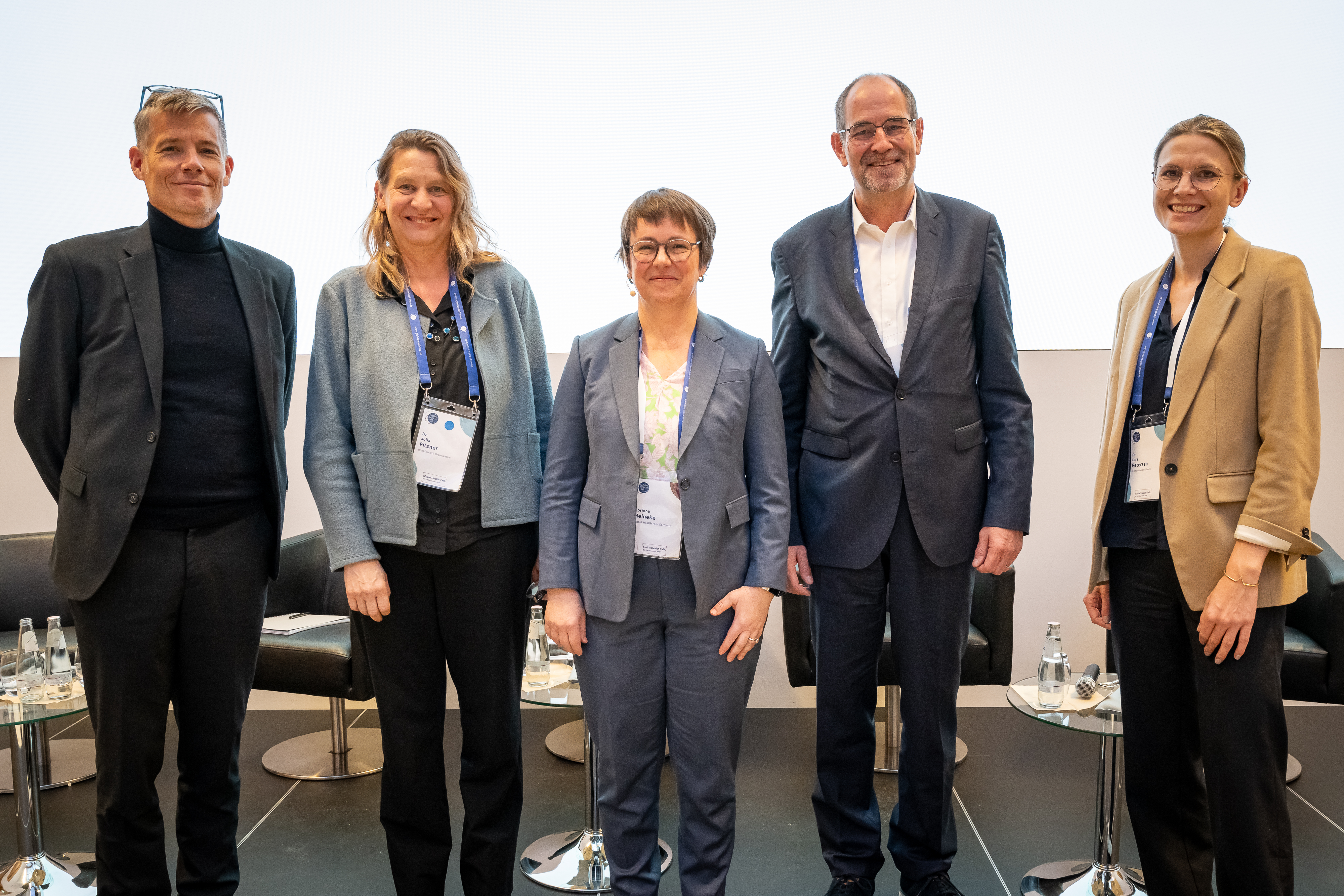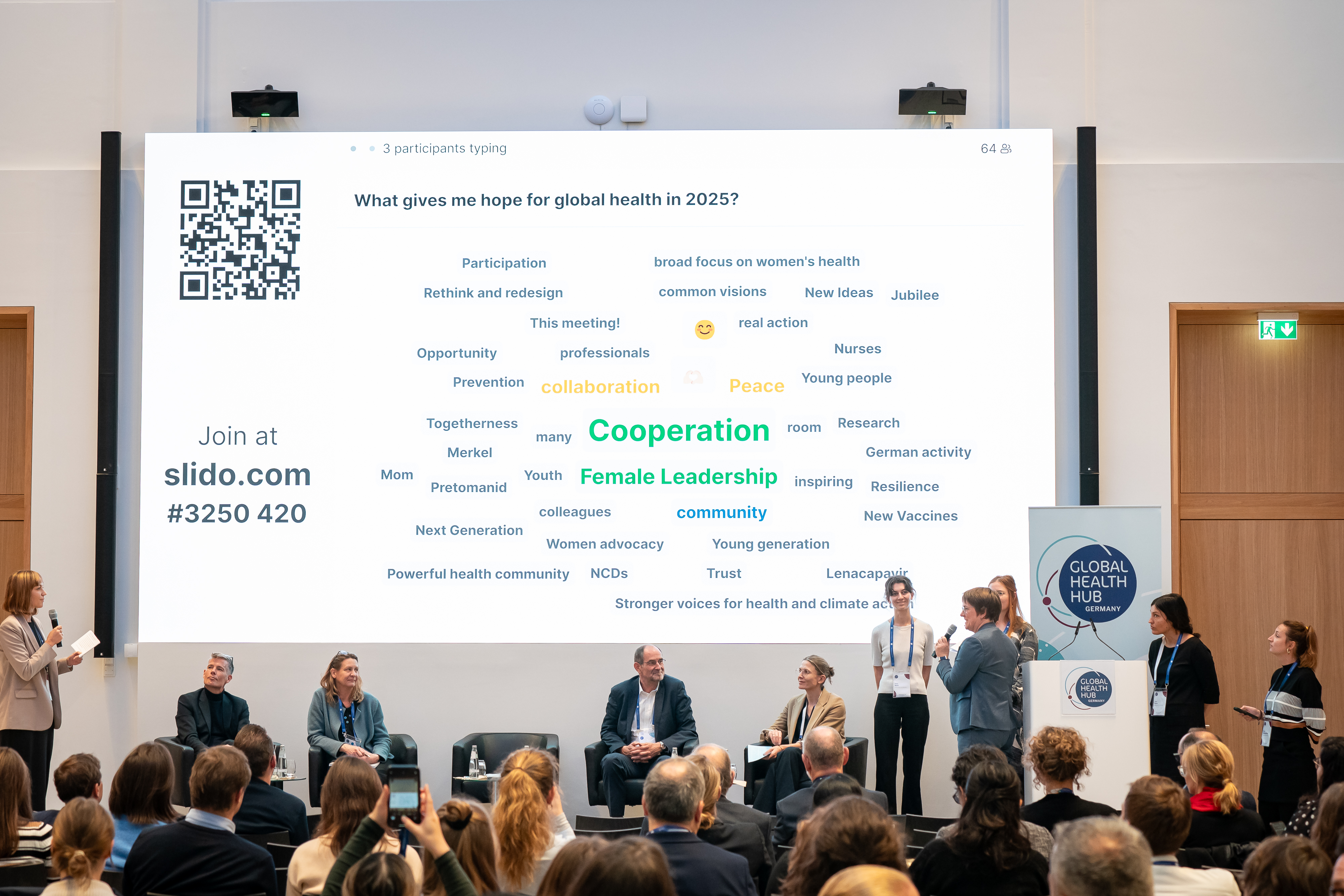Health in Times of Crisis: Recap of the Global Health Talk 2024
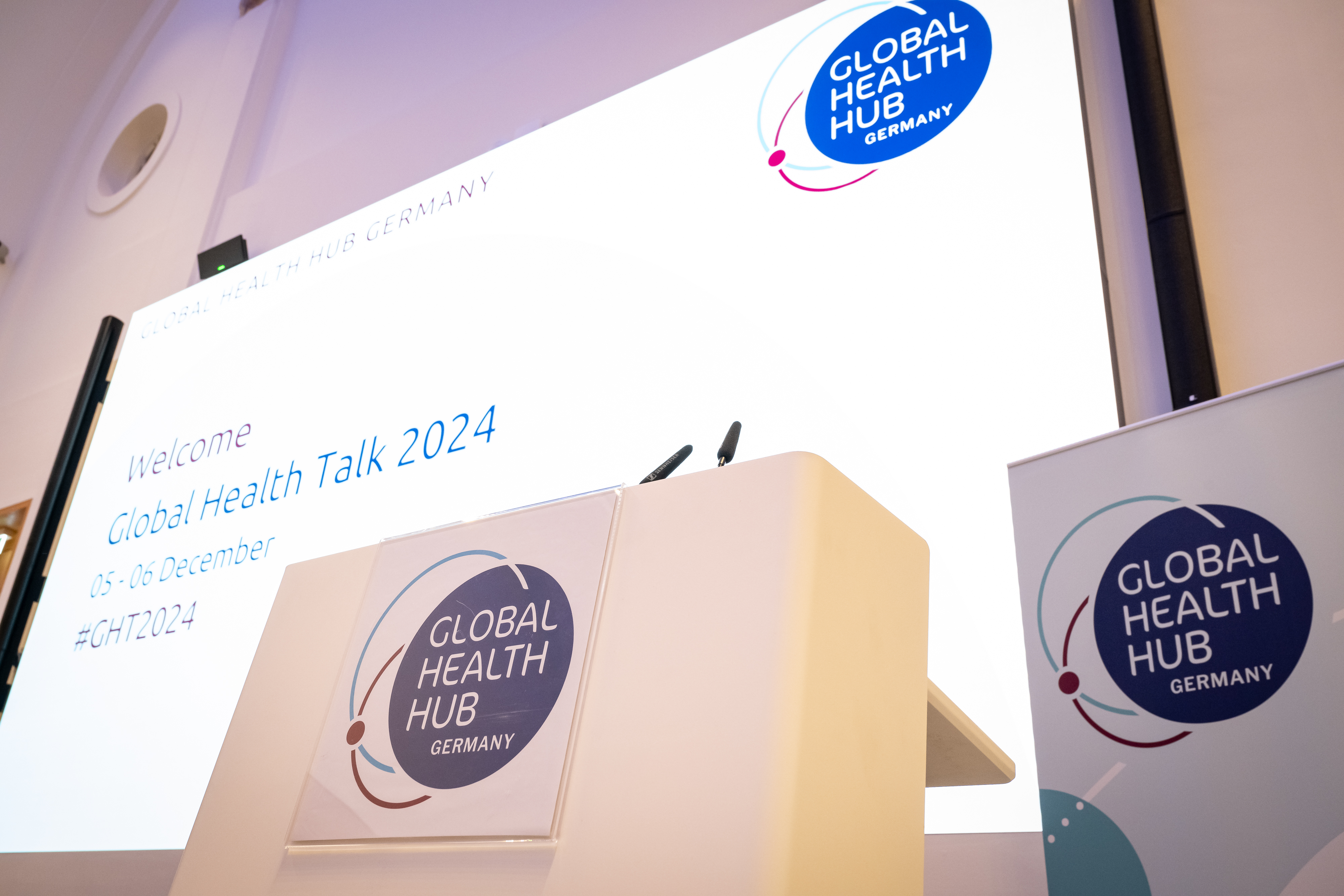
The annual Global Health Talk provides global health experts and advocates with a platform to exchange ideas on current developments in their field. This year, approximately 170 participants gathered at the conference center of the Federal Ministry of Health on December 5th and 6th.
December 2024
The conference included a welcome address by Prof. Dr. Karl Lauterbach, Germany’s Federal Minister of Health. In his speech, he emphasized the importance of collaboration in addressing global health challenges. He stated:
“The Global Health Hub Germany continues to be a vital platform where expertise, knowledge, and dedication converge to shape the future of global health, and the valuable expertise of its members informs political decision-making.”
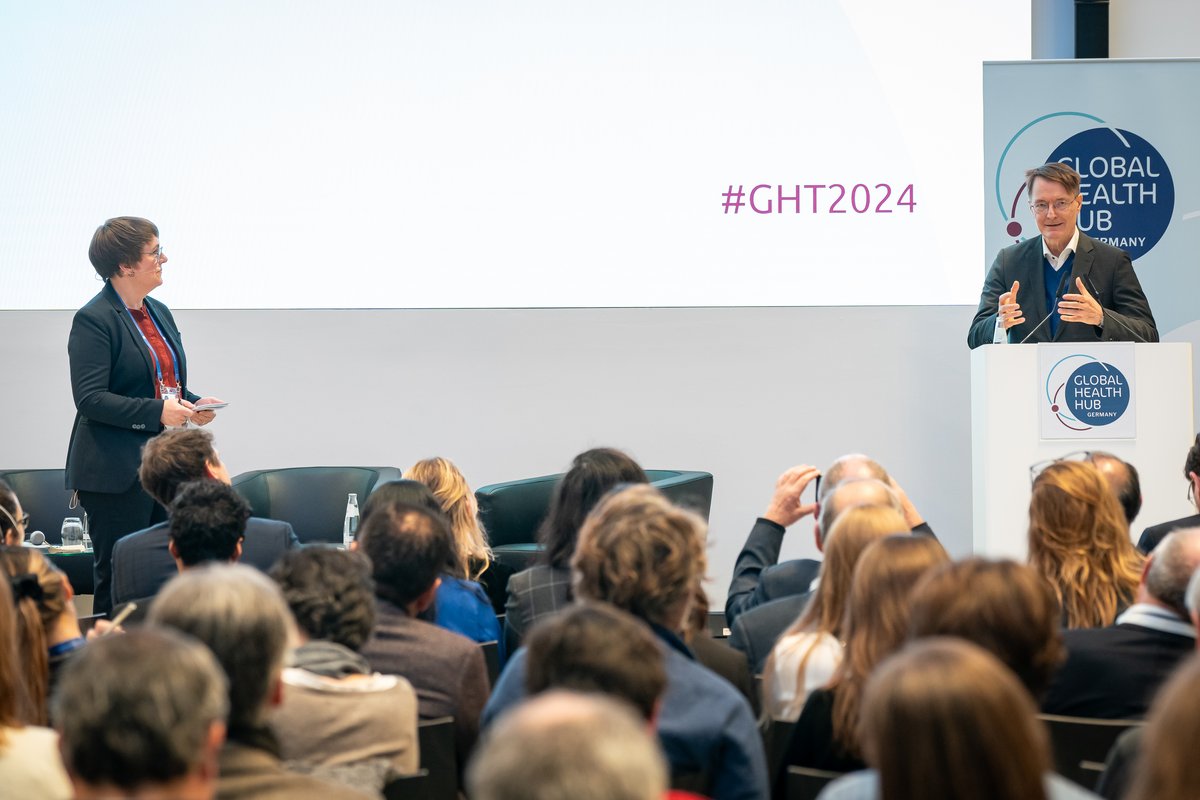
Prof. Lauterbach highlighted the urgent need for cross-sectoral collaboration in tackling issues like climate change and addressing health needs in fragile and conflict-affected regions. He stressed that global health challenges can only be effectively addressed through coordinated efforts across sectors and borders.
In her powerful keynote address, Dr. Lisa Hoffmann from the Federal Ministry for Economic Cooperation and Development, emphasized that countries with strong health systems are more resilient in times of crisis and conflict. She stressed that strengthening these systems requires integrated approaches, before concluding by highlighting the critical importance of peace:
“Lasting peace is the most important factor for health and well-being. Without peace, even the most resilient health systems crumble, communities suffer, and too many lives are lost.”
Health System Resilience in the Face of Crises: Sustainable Solutions for Lasting Impact
The first day of the conference featured a panel discussion focused on global health in conflict settings. The panel emphasized the importance of local leadership and knowledge in ensuring lasting health systems building in humanitarian efforts.
Key points from the session included:
- Localization means empowering local communities to leverage their knowledge and resources.
- Local actors often face funding gaps and systemic barriers, yet they are crucial first responders.
- To strengthen health systems in conflict zones, it is vital to bridge the humanitarian, development, and peace-building efforts through the HDP-Nexus.
Moderator: Dr Michelle Niescierenko, Director Global Health Program at Boston Children’s Hospital, Harvard Humanitarian Initiative
Speakers: Keynote by Dr Lisa Hoffmann, Deputy Head of Unit “Global Health and Health Financing”, Federal Ministry for Economic Cooperation and Development (BMZ); Dr Michael Ryan, Executive Director, WHO Health Emergencies Programme (virtual participation); Rachael Cummings, Humanitarian Director, oPt Country Office, Save the Children International (virtual participation); Ralf Südhoff, Director, Centre for Humanitarian Action (CHA); Yirga Gebregziabher, Regional Manager, Organization for Social Services and Health Development, Ethiopia/Tigray (virtual participation)
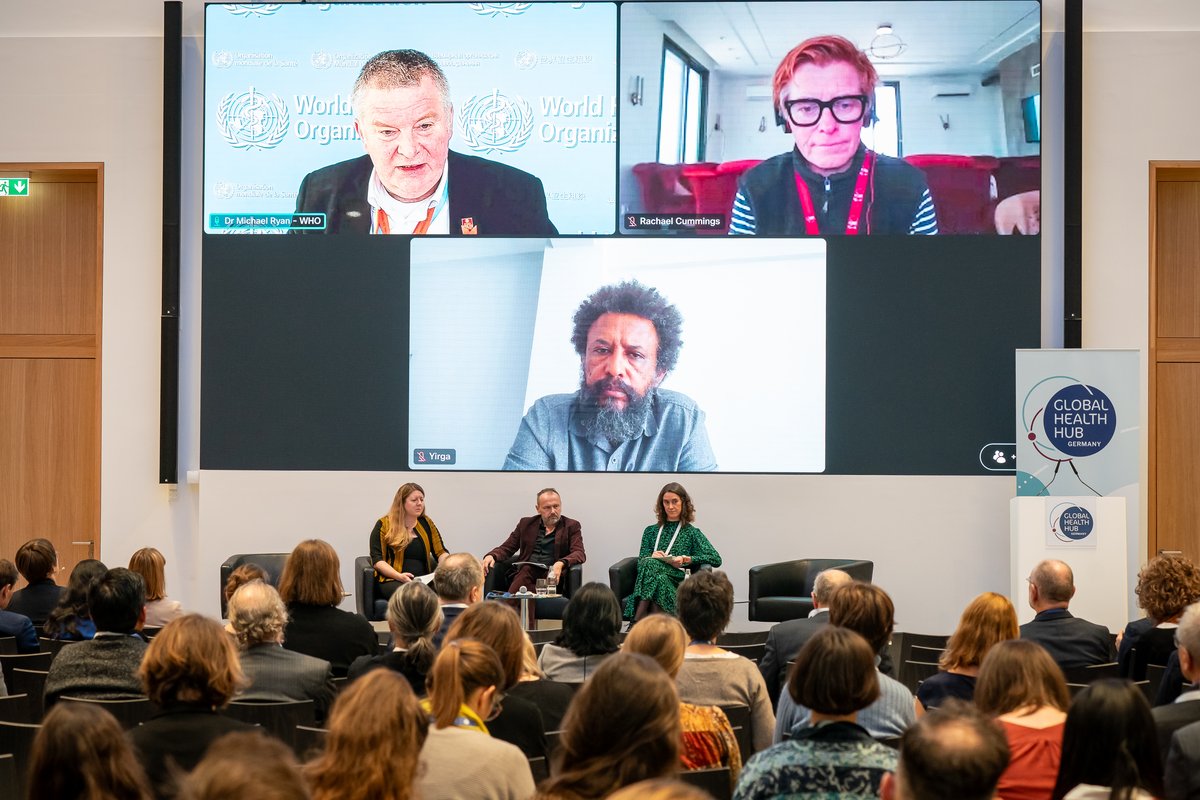
Germany’s Role in Global Health
In this session, the co-speakers of the Global Health Hub Germany steering committee, Sophie Gepp and Markus Beck, presented a position paper outlining global health priorities for the next German government. The paper emphasized the need for continued focus on sustainable financing, innovation in health technologies, and addressing the climate-health nexus.
Panellists reiterated the role of Germany in global health advocacy, with discussions highlighting the country’s proactive efforts in shaping climate and health strategies and expanding international collaboration.
Prof. Dr. Andrew Ullmann also emphasized the importance of creating sustainable financing systems for global health, including from new stakeholders, urging stronger partnerships with emerging economies to ensure their financial independence.
Moderator: Corinna Heineke, Managing Director, Global Health Hub Germany Speakers: Markus Beck, Sophie Gepp, Co-Chairs Steering Committee, Global Health Hub Germany; Prof. Dr Andrew Ullmann, Member of Parliament / FDP
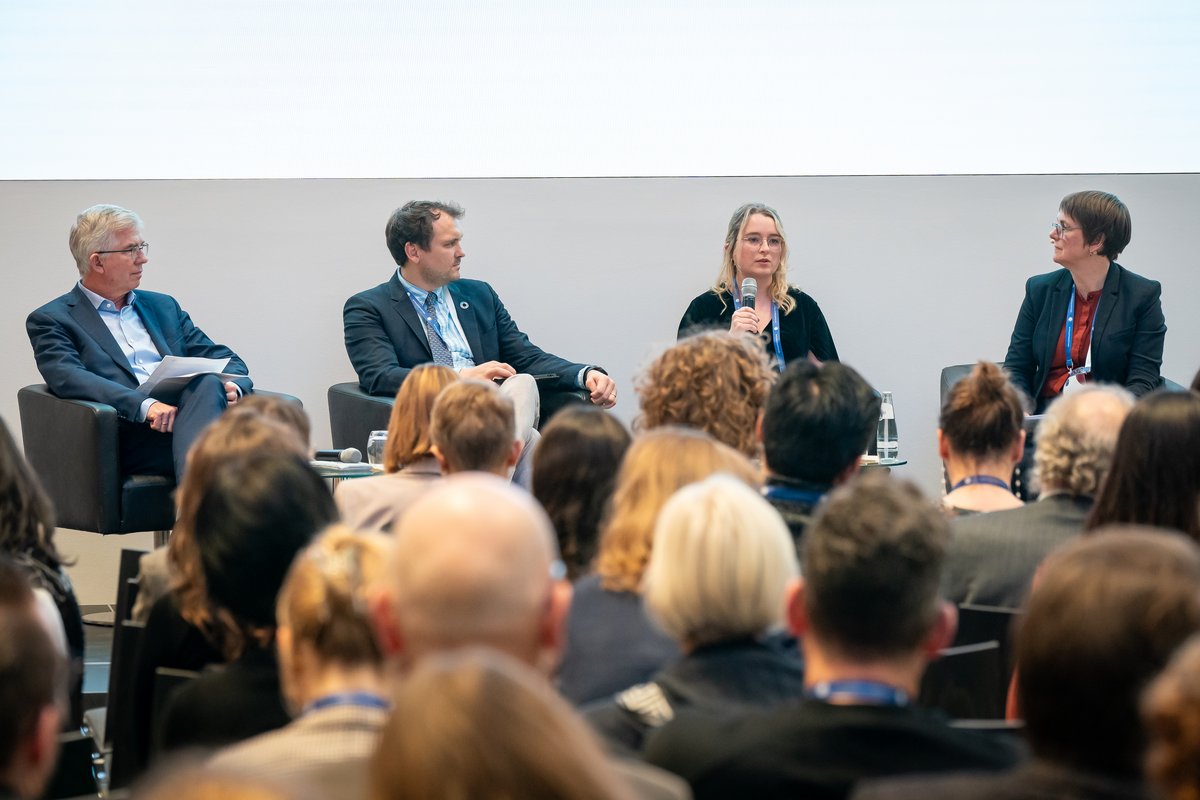
Aligning forces: Bridging Instruments and Actors to Maximise Europe's Global Health Engagement
Global health is a collective responsibility that demands innovative strategies, cross-sectoral cooperation, and trust-building to address emerging challenges. At this panel discussion on advancing Europe’s role in global health, several key insights emerged that underscore the importance of strategic alignment and collaboration across sectors:
Effective global health strategies must be underpinned by a clear vision. These strategies should result in actionable and measurable frameworks that foster collaboration, align diverse sectors, and produce tangible, long-term impact. Building robust partnerships with low and middle income countries and emerging economies is key to developing sustainable, equitable solutions. In the post-pandemic world, rebuilding trust in global health initiatives requires partnerships founded on shared responsibility and mutual accountability. All partners must work together as equals to foster trust and equity in decision-making and implementation.
Moderator: Dr Mariam Jashi, CEO Global Sepsis Alliance and Global Board Member of UNITE Parliamentarians Network for Global Health
Speakers: Anders Nordström, Advisor, Karolinska Institutet, Stockholm School of Economics, former Swedish Ambassador for Global Health; Rosana Lescrauwaet, Advocacy Officer, Cordaid and Chair of the Dutch Global Health Alliance; Dr Luis Pizarro, Executive Director, Drugs for Neglected Diseases initiative (DNDi); Dr Iris Hunger, Robert Koch-Institute, European Joint Action to maximise the impact of the EU global health strategy (JA-GHI)
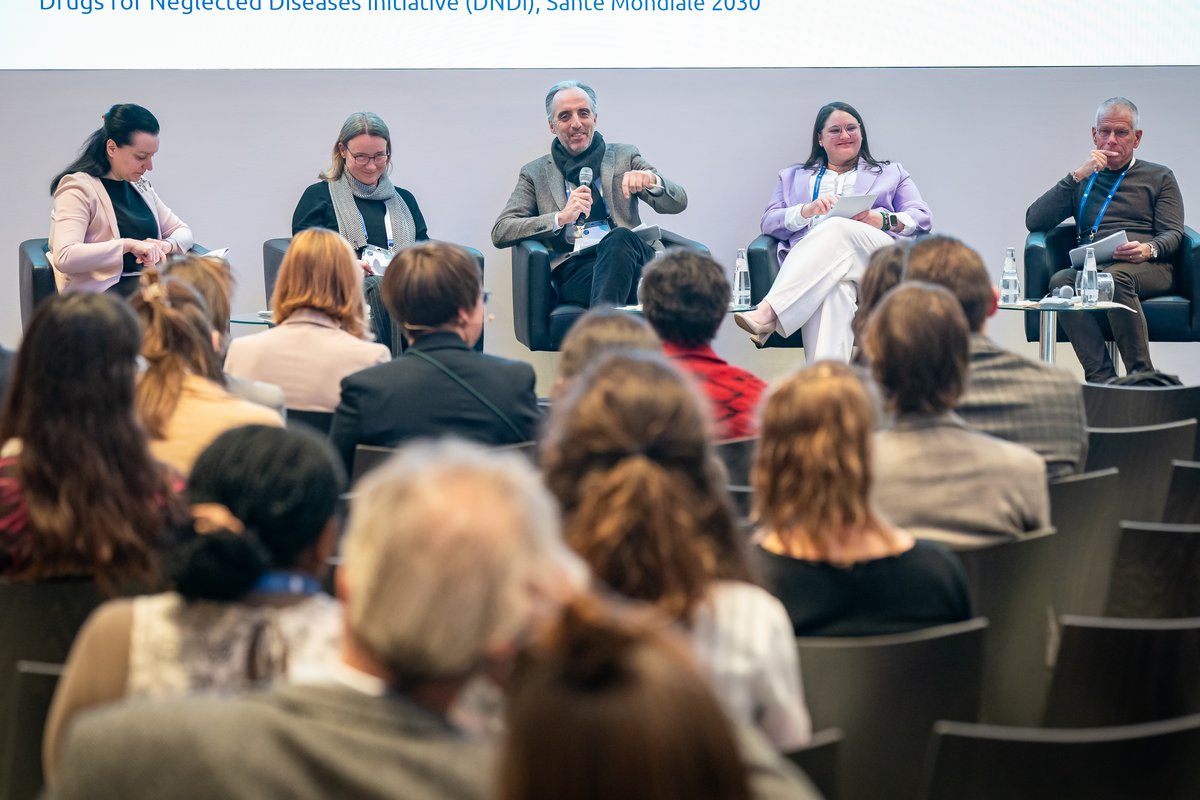
Health in the Age of Climate Change: Urgency for Adaptation
The intersection of climate change and health was another crucial topic discussed during the conference. Panellists focused on the disproportionate impacts that Small Island Developing States (SIDS), like Barbados, face despite minimal contributions to global emissions. The need for low-carbon, crisis-resistant health systems was emphasized, along with the importance of fostering global collaboration and political will to address these challenges.
As one panellist put it, “Health is the argument for climate action.”
Moderator: Sophie Gepp, Research Associate, Centre for Planetary Health Policy, and Co-Speaker of the Hub’s Steering Committee
Speakers: Ashley Lashley, UNICEF Youth Advocate, Executive Director of the Ashley Lashley Foundation; Marek Szilvasi, Director of Programmes, SLYCAN Trust; Maria Walawender, Research Fellow at the Lancet Countdown on Health and Climate Change
Poster Session: Best Practices in Healthcare for Conflict Settings
The Hub communities presented inspiring solutions to delivering healthcare in conflict zones, showcasing innovations ranging from sexual and reproductive health services to early detection of antibiotic-resistant pathogens.
These posters are available on our website for further exploration, providing an opportunity for continued engagement with these valuable insights. Hub members are encouraged to join the Hub Communities and to contribute to strengthening healthcare in conflict-affected areas.

The quiet crisis: Non-Communicable Diseases
Despite being referred to as a "quiet crisis", NCDs have a loud and far-reaching impact, particularly in low- and middle-income countries where health inequities exacerbate the consequences of these diseases. The session titled "Non-Communicable Diseases – The Quiet Crisis Demanding Global Attention: UN High-Level Meeting on the Prevention and Control of NCDs," emphasized the urgent need for collective global action to address the growing challenge posed by NCDs.
Key takeaways included tailoring policy interventions to local contexts, viewing public health as an investment in society, and enhancing cross-sector collaboration to ensure a wider and more lasting impact on public health.
Moderator: Laura Roth, Center for Global Health, Faculty of Medicine, Technical University Munich & NCD Community Manager
Speakers: Prof. Dr Dr Andrea S. Winkler, Department of Neurology, TUM University Hospital and Center for Global Health, School of Medicine and Health, Technical University of Munich (TUM) & Community Manager NCD Community GHHG, Prof. Dr med. Baptist Gallwitz, Spokesperson and Board member, German Diabetes Association (ddg) and Board member, German Alliance against Non-Communicable Diseases (DANK), Dr Guy Fones, Acting Head of NCDs, WHO
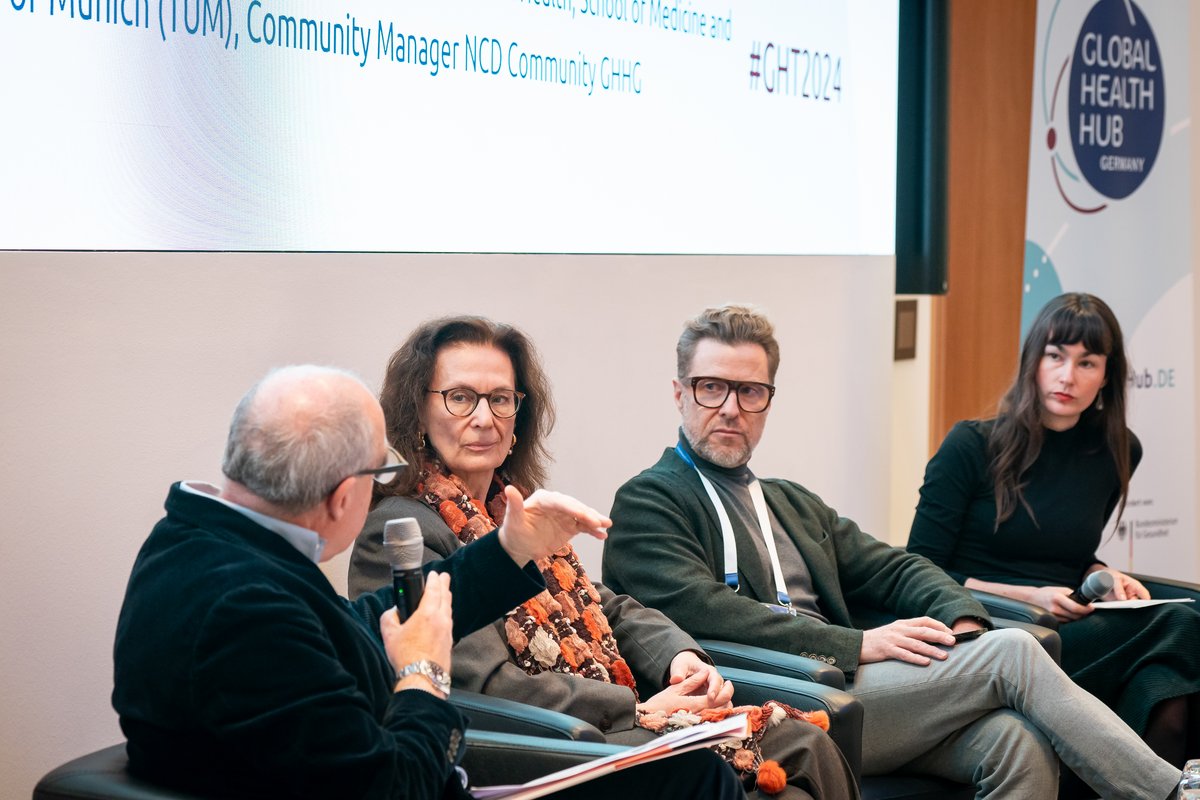
Looking Ahead: Global Health Challenges and Opportunities for 2025
The second day of the conference featured a forward-looking, inter-active discussion with the audience on Global Health Highlights and Challenges in 2024 and how these lessons can shape our approach to 2025. The session focused on recent negotiations for a Pandemic Agreement, the Mpox response, the WHO Investment Round, as well as women’s health.
Check out what global health experts have to say:
Global Health Challenges in 2025
Moderator: Corinna Heineke
Speakers: Dr Christoph Benn, Joep Lange Institute Center for Global Health Diplomacy; Björn Kümmel, Head of Unit Global Health, Federal Ministry of Health (BMG); Dr Lara Petersen, Director, German Health Alliance; Dr Julia Fitzner, WHO Hub for Pandemic and Epidemic Intelligence
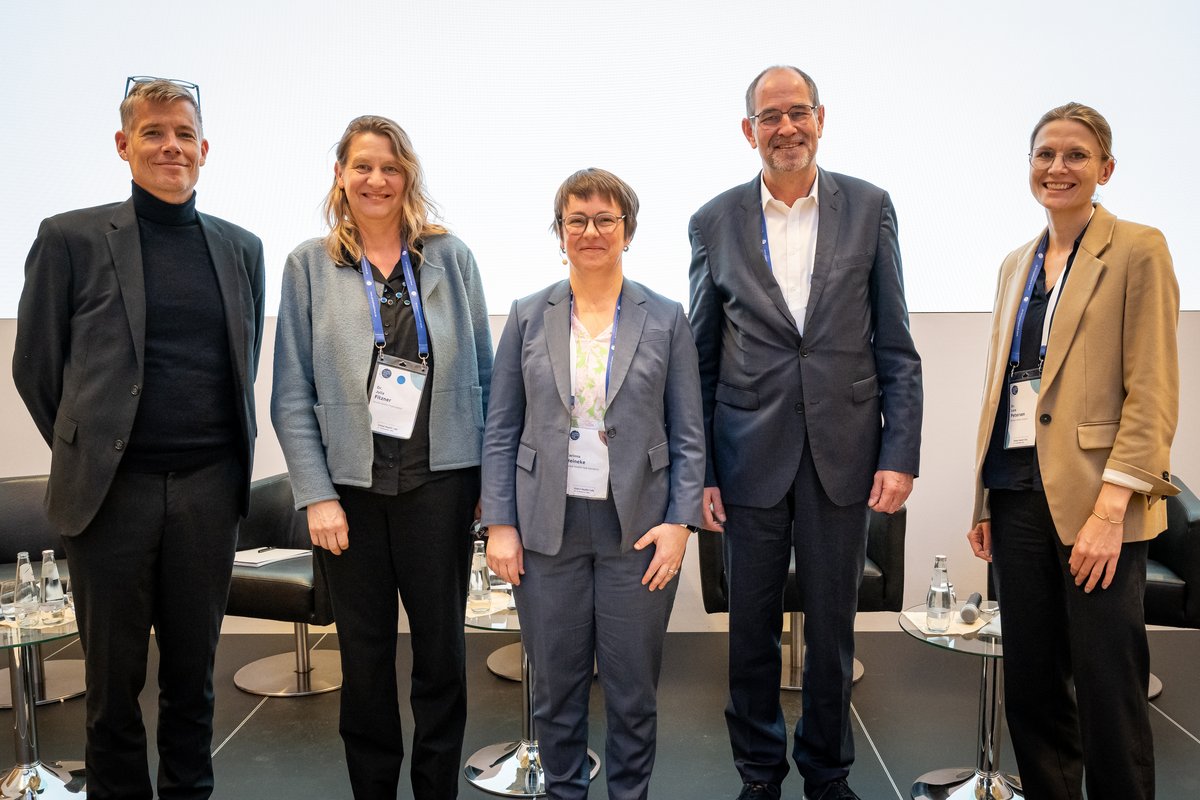
Conclusion: Continuing the Conversation
As we close this year’s Global Health Talk, we reflect on the invaluable shared commitment to improving health worldwide. From the critical issue of health in conflict settings to the urgent need for sustainable climate and health strategies, we look forward to continuing the conversation and action with you in 2025.
A special thank you goes to the Federal Ministry of Health, the Federal Ministry for Economic Cooperation and Development (BMZ), and the Wellcome Trust for their support, which made this event possible.
Images: Thomas Ecke
